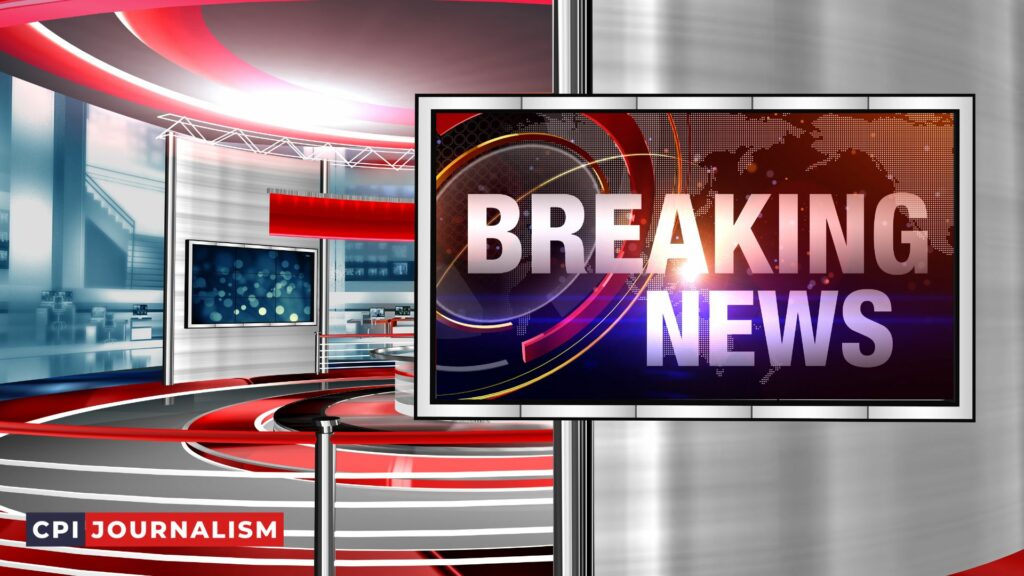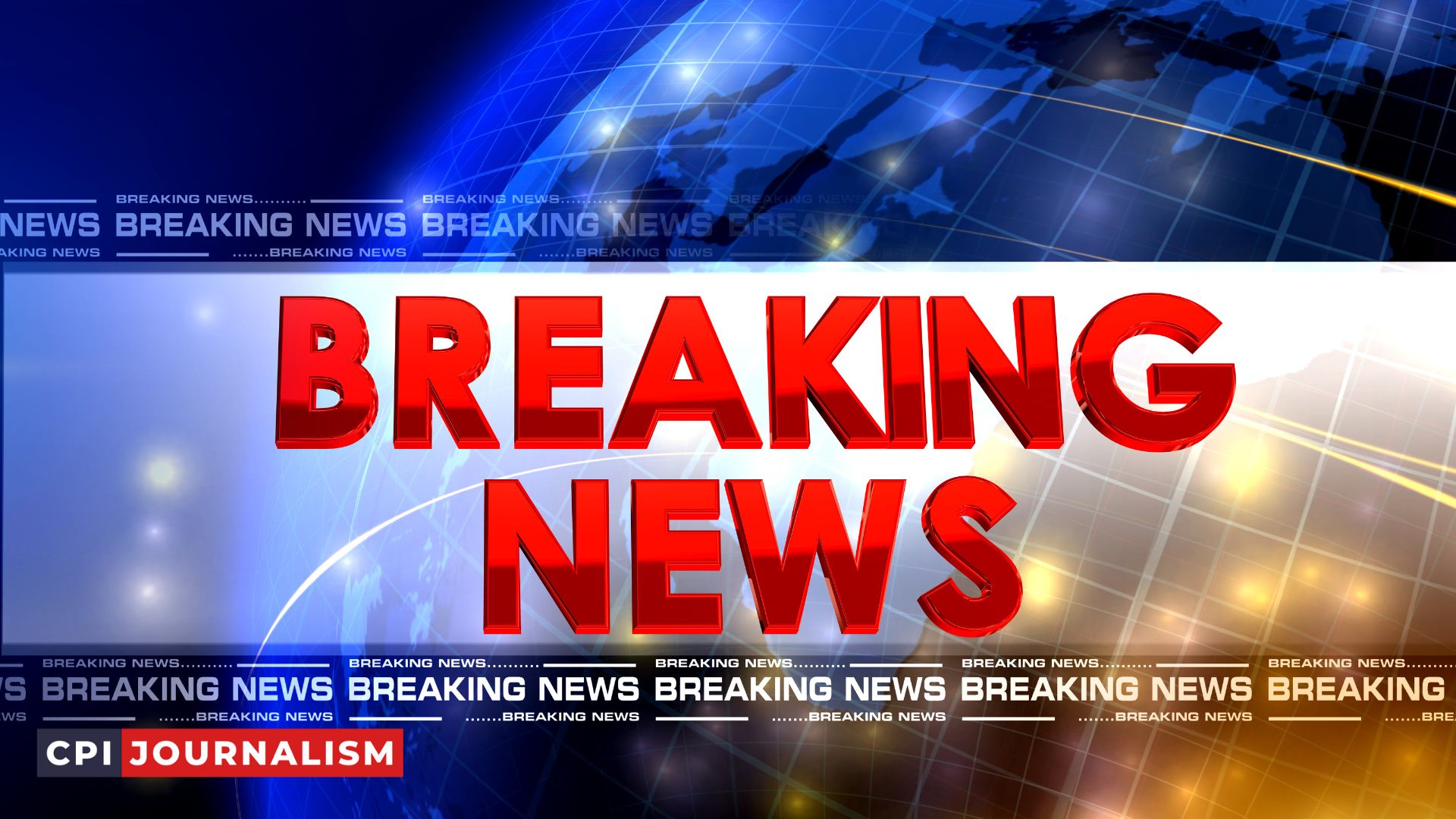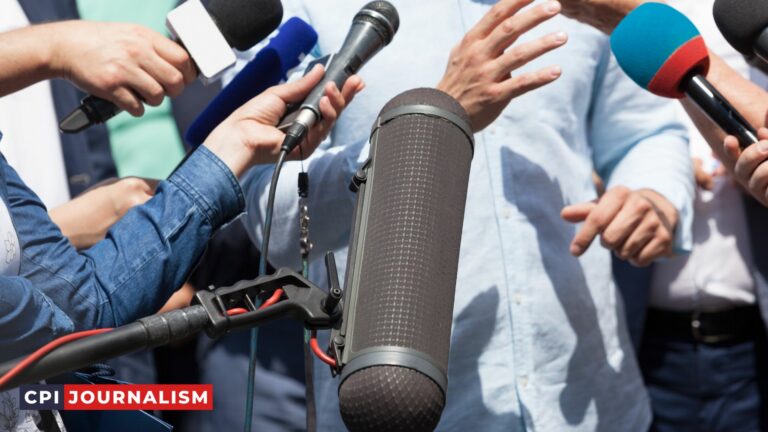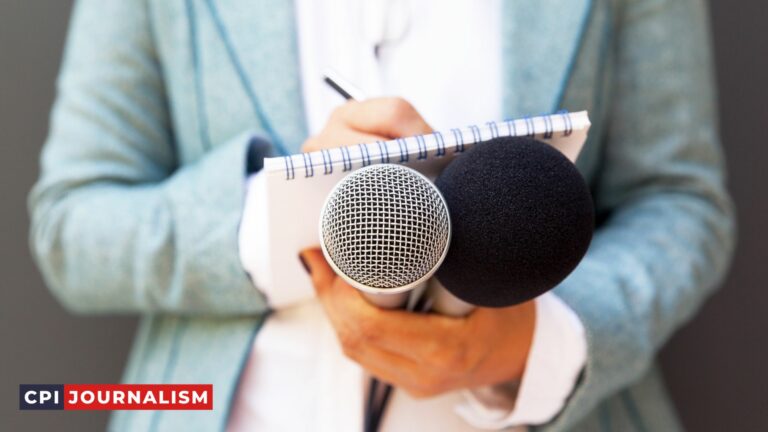How Can Broadcast Journalists Handle Difficult Or Confrontational Situations, Such As Live Interviews Or Breaking News Events?
As an experienced journalist, I’ve faced many difficult and confrontational situations throughout my career. From live interviews to breaking news events, I know firsthand the challenges that come with being a broadcast journalist.
In this article, I’ll share some of my wisdom and experience on how to handle these situations with grace, professionalism, and confidence.
I’ll also provide tips on how to stay calm and maintain composure when faced with difficult questions and unexpected events. With this advice, upcoming journalists can feel more equipped and prepared when navigating these challenging scenarios.
A. Overview of the Challenges of Broadcast Journalism
Broadcast journalism is a demanding job that requires a certain level of skill and expertise. Journalists are expected to remain composed and professional in stressful and difficult situations, such as live interviews and breaking news events.
As a broadcast journalist, it is your responsibility to remain unbiased, objective, and accurate while delivering news to the public.
Broadcast journalism brings with it a unique set of challenges that can be difficult to overcome. Live interviews require a journalist to think quickly on their feet and remain composed under pressure.
It is important to remain impartial and objective, while also obtaining the necessary information from the interviewee. Breaking news events are often unpredictable and require a journalist to remain flexible and adaptable in order to provide the most accurate coverage.
Additionally, broadcast journalists must be mindful of the ethical considerations that come with the job. These include avoiding bias and sensationalism, checking facts and sources, and presenting both sides of a story.
The challenges of broadcast journalism are not to be taken lightly, and require the utmost care and professionalism.
Handling Difficult Or Confrontational Interviews
As a broadcast journalist, it is inevitable that you will encounter difficult or confrontational interviews or breaking news events. The key to handling such situations is to remain calm and professional, even in the face of adversity or hostility.

Here are a few tips on how to handle such scenarios:
1. Stay focused and be prepared: Before the interview or news event, it is important to do your research and be prepared. Know your subject and the questions you plan to ask. Having this information prepared in advance can help you to stay focused and be prepared for whatever may come.
2. Remain calm and composed: When faced with a confrontational situation, it is important to remain calm and composed. Try to remain focused on the facts, rather than getting drawn into an argument. If the interviewee or news event becomes too heated, take a deep breath and try to refocus the conversation.
3. Know your limits: It is important to know when it’s time to end an interview or move on from a particular news event. If the interviewee or news event becomes too difficult or confrontational, it is best to politely end the conversation or move on to another story.
4. Maintain professionalism: As a broadcast journalist, it is important to maintain your professionalism at all times. It is important to remain respectful and courteous, even when faced with difficult or confrontational situations.
By employing these tips, broadcast journalists can confidently handle difficult or confrontational interviews or breaking news events.
By remaining calm, composed and professional, broadcast journalists can remain focused on the facts and ensure that all information is accurately reported.
A. Preparation
As an experienced journalist, I can confidently say that preparation is key when it comes to handling difficult or confrontational situations, such as live interviews or breaking news events.
With that in mind, here are a few tips to help you be better prepared and more confident when facing these types of situations.
First and foremost, it’s important to do your research. Before any interview or live event, make sure you are familiar with the topic or person you’re discussing.
Read up on any relevant information, watch any existing footage, or if you have the chance, speak to someone with relevant knowledge about the topic or individual.
This will help you have a better understanding of the situation and be better prepared to ask any pertinent questions.
In addition, it’s important to make sure you’re familiar with the equipment you’ll be using. This means testing all your equipment beforehand, such as your microphone, camera, and any other tools that you’ll be using.
This will ensure that you don’t have any technical difficulties during the live event or interview.
Finally, it’s important to practice. Take the time to practice your lines, questions, and any other elements that you’ll be using when interviewing or being live. This will help you feel more confident and prepared when the time comes for the event or interview.
By following these steps, you’ll be better prepared to handle any difficult or confrontational situations that come your way. Preparation is key and with the right preparation, you’ll be more confident and better equipped to handle any situation that comes your way.
1. Researching the Interviewee
As an experienced broadcast journalist, one of the most important steps in preparing for difficult or confrontational interviews is to research the interviewee.
Before the interview, you should have a clear understanding of the interviewee’s background, their views on the topic, and the potential questions they may be asked. This will give you the ability to anticipate their answers and have well thought out follow up questions.
It is also important to research any other relevant material, such as any articles or statements the interviewee has made in the past. This will enable you to ask more informed questions, and to better understand the interviewee’s position on the issue.
It is also beneficial to read up on any current or past controversies related to the interviewee or the topic. This will help you to form a clear opinion of the interviewee and to anticipate how they may respond to certain questions.
By researching the interviewee and any relevant material, you will be able to prepare for the interview in a much more effective way. You will know their stance on the issue, their potential responses, and the questions that need to be asked.
This will give you the confidence to tackle difficult or confrontational interviews, and to ensure that the interview is conducted as professionally and as smoothly as possible.
2. Developing Questions
As a broadcast journalist, developing questions for interviews or breaking news events can be a daunting task. However, with the right preparation, you can become comfortable with the process and effectively handle difficult or confrontational situations.
Here are a few tips for developing questions for interviews and breaking news events:
1. Research Your Subject: Before the interview or breaking news event, take the time to do research on the person or subject. This will help you better understand their position on the issue, so you can develop informed questions.
2. Ask Open-Ended Questions: Asking open-ended questions allows the interviewee or source to provide more information and in-depth answers. Open-ended questions can also help you gain insight on the issue at hand.
3. Prepare Follow-Up Questions: Have follow-up questions ready in case the interviewee or source does not answer your initial questions. This will allow you to probe deeper and gain more information.
4. Listen Carefully to Answers: Listening carefully to the answers provided by the interviewee or source is important, as it will help you develop questions that are relevant and appropriate.
5. Be Professional: As a broadcast journalist, it is important to maintain a professional demeanor. This will help ensure that you can handle difficult or confrontational situations in a calm and measured manner.
By following these tips, you will be able to develop questions for interviews and breaking news events that are informed, relevant, and professional. As a broadcast journalist, having the ability to effectively handle difficult or confrontational situations is essential to success.
3. Rehearsing
Rehearsing is an important part of being a successful broadcast journalist. It is essential to plan how you will handle difficult or confrontational situations in advance. This will help you stay calm and composed during the actual event.
Rehearsal sessions should include practicing the questions you will ask and the answers you will provide. You should also practice responding to unexpected questions or comments.
It is also important to practice how you will handle the technical aspects of live interviews or events. This includes making sure you have the correct equipment and that it is functioning correctly.
Furthermore, you should practice the transitions between different segments of the broadcast. This will ensure that you have a smooth and professional presentation.
Rehearsing will also give you the opportunity to practice how you will interact with your interviewee or guests.
This includes making sure you are addressing them in a respectful and professional manner. Additionally, you should practice the body language you will use during the broadcast. This will help you maintain a positive rapport with your guests or interviewees.
Finally, rehearsing will give you the opportunity to practice the tone of your voice. This is critical in order to ensure that you sound professional and confident during the live broadcast. It will also help you stay composed and control your emotions in difficult or confrontational situations.
B. During the Interview
As a broadcast journalist, it is important to remain calm and composed while on the job, particularly during an interview.
Here are a few tips to help you navigate a difficult or confrontational situation during an interview:
1. Be well-prepared: Before the interview, familiarize yourself with the subject matter and the interviewee so that you are not caught off guard.
2. Remain professional: Maintain a level of professionalism even if the interviewee is not behaving in a professional manner.
3. Listen and understand: As a journalist, it is important to remain impartial and to listen to the interviewee without judgement. You may not agree with their point of view but it is important to understand where they are coming from.
4. Stay calm: It is important to remain calm and composed during a difficult or confrontational situation. If a situation is becoming too heated, take a break from the interview and come back to it when both parties have had a chance to cool down.
5. Respect their opinion: While disagreeing with an interviewee is perfectly fine, it is important to respect their opinion and not to be overly critical.
6. Be aware of your body language: Your body language can say a lot about your emotions and attitude. Be aware of your facial expressions and body posture and make sure to appear relaxed and open to the conversation.
7. Take time to reflect: It is important to take a step back and reflect on the interview after it has concluded. This will help you gain insight into how to better handle difficult or confrontational situations in the future.
1. Maintaining A Professional Demeanor
As a broadcast journalist, it is important to maintain a professional demeanor in all situations, regardless of how difficult or confrontational they may be. Remaining composed and calm in the face of challenging circumstances is key to maintaining credibility and integrity.
When faced with difficult or confrontational interviews or breaking news events, it is important to remember that emotions should be kept in check. It is essential to remain impartial and objective, and to not be drawn into any debates or arguments.
It is also important to stay respectful and polite, even if the other party is not. This will help to ensure that the interview is conducted in a professional manner and that the story is reported accurately and fairly.
It is also important to stay focused on the story and not be distracted by the behaviour of the other party. It is essential to remain focused on the facts at hand and to not become embroiled in any personal disputes or disagreements.
Finally, it is important to remember that as a journalist, you are representing the broadcast station and your own reputation as a professional. Therefore, it is essential to maintain a high level of professionalism and adhere to the highest ethical and moral standards.
2. Keeping the Conversation on Track
When handling confrontational situations, it is important to stay focused on the discussion and not be distracted by the other person’s emotions. Staying on track can help to ensure that the conversation remains civil and that the interviewer is able to get the information they need.
1. Establish Ground Rules: Establishing ground rules for the conversation can help to ensure that everyone involved is aware of expectations and guidelines for the discussion. This can help to keep the conversation on track and ensure that all parties involved are respectful and professional.
2. Listen Actively: Listening actively to what the other person is saying is essential to keeping the conversation on track. This means listening without interruption or judgement, and seeking to understand the other person’s point of view.
3. Remain Calm: Remaining calm and composed is essential in keeping the conversation on track. Avoiding an emotional response or getting defensive can help to ensure that the conversation remains civil.
4. Stay on Topic: It is important to stay focused on the topic at hand, and to avoid getting sidetracked by other topics. Keeping the conversation focused on the main points can help to ensure that the interviewer is able to get the information they need.
5. Ask Clarifying Questions: Asking clarifying questions can help to ensure that both parties are on the same page. This can help to keep the conversation on track and ensure that the interviewer is able to get the information they need.
By following these tips, broadcast journalists can help to keep the conversation on track and ensure that they are able to get the information they need. This can help to ensure that the interview is conducted in a respectful and professional manner.
3. Responding to Difficult Questions
As a broadcast journalist, it is important to be prepared to handle difficult or confrontational situations in a professional manner. When responding to difficult questions, it is important to remain calm and composed, and to answer the question to the best of your ability.
The first step in responding to difficult questions is to listen carefully and take time to understand the question that is being asked. This will help you to respond in an appropriate manner and avoid jumping to conclusions.
If a question is unclear or ambiguous, ask for clarification before answering. Additionally, it is important to remain courteous and respectful when responding, even if the question or the interviewer is confrontational.
When responding to difficult questions, it is important to be honest and direct. Avoid giving vague or evasive answers, as this will often give the impression that you are not being truthful or are hiding something.
Instead, provide a clear answer to the question, and be prepared to back up your answer with facts and evidence.
Finally, remember to maintain a positive attitude and remain professional throughout the interview. Do not be drawn into a confrontation, and avoid making personal attacks or offensive comments.
Focus on the facts and avoid getting sidetracked by the emotions of the moment. By following these tips, you will be able to respond to difficult questions in a professional and effective manner.
4. Utilizing Active Listening Techniques
Active listening is an essential tool for broadcast journalists when handling difficult or confrontational situations. Active listening techniques help journalists to stay focused on the conversation, show that they are listening and understanding, and respond in a meaningful way.
The first step in active listening is to pay full attention to the speaker. As a journalist, it is important to stay focused on the conversation and not become distracted. This helps to ensure that all important points are being heard and understood.
Next, it is important to be aware of body language. Make sure to maintain eye contact and have an open stance, which will show that you are engaged in the conversation. Additionally, nodding and verbal cues such as “mmm hmm” can demonstrate that you are listening.
Another important element of active listening is to allow the speaker to fully express themselves. This involves not interrupting the speaker and allowing them to finish their thoughts. Once the speaker has finished, it is important to summarize what was said so that both parties are on the same page.
Finally, active listening involves asking meaningful questions. This will help the speaker to further explain their point, and also provide the journalist with more information. As a journalist, it is important to ask questions that are both relevant and timely.
By utilizing active listening techniques, broadcast journalists can ensure that they are properly handling difficult or confrontational situations. This will help to ensure that all important points are heard and understood, and that both parties are on the same page.
5. Asking Clarifying Questions
As a broadcast journalist, it is essential to ensure that the information you are reporting is accurate. To do this, it is important to ask your interviewees clarifying questions in order to make sure that you fully understand their answers.
This will help ensure that the information you are presenting is correct and that you are not misrepresenting any facts.
When asking clarifying questions, it is important to be polite and to not interrupt your interviewee. This will allow them to provide more comprehensive and accurate answers and help you to ensure that the information you are reporting is correct.
Additionally, it is important to use open-ended questions that allow the interviewee to provide more detailed information and context.
Asking clarifying questions can also help you to better understand the underlying motivations behind the interviewee’s statements, which can help you to provide more balanced and impartial reporting.
Additionally, it can help you to identify and address any potential bias in the interviewee’s statements.
Finally, asking clarifying questions can help you to identify any potential inconsistencies in a given interviewee’s statements, which can help you to uncover any potential inaccuracies or misleading information.
y doing so, you can help to ensure that the information you are reporting is reliable and accurate.
In summary, asking clarifying questions is an essential skill for broadcast journalists and can help you to ensure that the information you are reporting is accurate and reliable.
Additionally, it can help you to better understand the underlying motivations behind the interviewee’s statements, identify any potential bias, and uncover any potential inaccuracies or misleading information.
C. After the Interview
Once the interview is over, it is important for broadcast journalists to take a moment to reflect on how the interview went. It is essential to be honest with yourself and assess the interview objectively.
Did you ask the appropriate questions? Did you stay on topic? Did you adequately prepare for the interview? Were you able to remain calm and professional when faced with difficult or confrontational situations? Taking the time to reflect on the interview can help a journalist identify areas for improvement and ensure future interviews are even better.
Moreover, after the interview, it is important for broadcast journalists to thank the person they interviewed. A brief thank you note, email or phone call can go a long way in building and maintaining relationships.
Additionally, if the interview was broadcasted, it is important to send a copy of the recording or transcript to the person interviewed. This is a courtesy which will be greatly appreciated by the interviewee and it will help to further the journalist’s reputation.
Finally, it is important for broadcast journalists to take the time to review their own performance and the performance of their team. Taking a few minutes to debrief and critique the interview can help to identify areas for improvement and ensure a successful outcome for future interviews.
1. Debriefing
As a broadcast journalist, it is essential to debrief after any difficult or confrontational situation. Debriefing allows you to process the situation and reflect on how you handled it.
After a difficult live interview or breaking news event, it is important to take the time to reflect on the experience and identify any areas of improvement.
One of the most important aspects of debriefing is to discuss the incident with your colleagues. This provides an opportunity to exchange perspectives and learn from one another. It is also important to be honest and open with your colleagues in order to gain the most benefit from the debriefing.
Another important element of debriefing is to review the footage of the event, if available. This allows you to evaluate your performance and look for areas that can be improved. Additionally, it can help you identify any mistakes that were made and develop strategies to avoid them in the future.
Finally, it is important to take the time to reflect on the experience and any lessons learned. This may include considering how you could have responded differently in the situation, or what strategies you could have used to mitigate the tension.
In summary, debriefing is an essential part of being a broadcast journalist. It provides an opportunity to reflect on the incident, learn from your colleagues, review the footage, and consider any lessons learned.
Taking the time to debrief can help you become a better broadcast journalist and prepare for future difficult or confrontational situations.
2. Reflection
As an experienced journalist, I have developed a few key strategies for navigating difficult or confrontational situations that have served me well over the years. Firstly, I always strive to remain calm and composed during these situations.
This is especially true during live interviews or breaking news events, as it is important to project an air of professionalism and authority. Secondly, I strive to connect with the person I am interviewing or reporting on a human level.
This helps to create an atmosphere of trust, allowing the other person to feel comfortable enough to open up and share their story. Lastly, I focus on asking the right questions.
Asking questions that are specific and relevant to the situation helps to ensure that all relevant information is gathered and reported accurately.
Being a journalist can be a difficult and often stressful job. However, by keeping these strategies in mind, I have been able to handle difficult and confrontational situations with grace and professionalism. I hope this advice can help new journalists to do the same.
Handling Breaking News Events
Breaking news events can be some of the most difficult and confrontational situations a broadcast journalist will face. The pressure to provide accurate, up-to-date information quickly and concisely is immense, especially in fast-moving and unpredictable situations.
The key to successfully handling breaking news events is to remain calm, focused and prepared. It’s important to remember that you are the expert and the audience is relying on you to provide them with the facts.
As such, it is vital to take the necessary steps to ensure that the information you are providing is accurate and unbiased.
First, research the story and obtain all the necessary information. Knowing the facts and the context of the situation will help you present the story in a clear and informative manner. It is also important to stay abreast of any new developments and update your audience as soon as possible.

Second, remain calm. Even in the most chaotic and unpredictable situations, it’s important to maintain a level of composure. This helps to ensure that the interviewee or other participants remain focused and don’t become agitated or confrontational.
Third, be clear and concise. It’s important to communicate the facts in an organized and straightforward manner. Take the time to explain the situation in a way that is understandable for the audience.
Finally, be prepared for difficult questions or confrontational comments. It’s important to be prepared for any challenging questions or controversial comments that may arise.
Having a plan in place to handle these types of situations can help to ensure that you remain professional and maintain control of the conversation.
By following these steps, broadcast journalists can effectively handle breaking news events and provide their audience with the necessary information in a professional and timely manner.
A. Preparation
As a broadcast journalist, you may find yourself in the unenviable position of having to handle difficult or confrontational situations, such as live interviews or breaking news events.
Fortunately, there are some strategies you can employ to help you prepare for these situations and effectively manage them.
First and foremost, it is important to do your research. Before any interview or breaking news event, familiarize yourself with the subject matter and the people involved. This will help you to better understand the context of the situation and anticipate potential questions or reactions.
When conducting an interview, it is beneficial to prepare some questions in advance. This will help you to stay focused and ensure that you have concise and meaningful questions to ask.
In addition, make sure you have access to the necessary equipment to record the interview. This could mean having backup batteries for your recording devices, as well as extra memory cards or discs.
Finally, be sure to practice. Rehearse the questions you plan to ask and practice your responses to any difficult or confrontational questions or comments. This will help you to stay calm and focused during the interview and be better prepared to respond.
By taking the time to do your research, prepare questions, and practice, you will be better equipped to handle difficult or confrontational situations.
1. Researching The Event
Before heading into a live interview or a breaking news event, it is essential for broadcast journalists to do their due diligence and research the topic thoroughly.
Researching the event allows a journalist to be more informed and better prepared to handle any difficult or confrontational situations that may arise.
One of the most important aspects of researching the event is to get the facts straight. This means verifying sources, checking facts, and double-checking the accuracy of the information.
Journalists should also research the background of any interviewees and other relevant parties to the event, so they can be better equipped to ask more informed questions.
Additionally, research for upcoming interviews should include reading other interviews and articles about the topic, as well as any relevant news reports. This will help journalists develop a better understanding of the subject, as well as potential questions to ask and topics to discuss.
Finally, having a good understanding of the event will help broadcast journalists feel more confident when asking questions and responding to difficult or confrontational situations. Being well-informed and prepared will help journalists remain professional and respond accordingly.
2. Developing Questions
As a broadcast journalist, it is important to be prepared to ask the right questions in any situation, especially in difficult or confrontational situations. This can be especially challenging in live interviews or breaking news events, where the pressure is on to capture the story as it unfolds.
The key to developing effective questions for these types of situations is to do your research ahead of time. If you are conducting an interview, it is essential to review the background and research the topic thoroughly so that you are prepared with relevant questions.
Additionally, it is important to anticipate potential questions that the interviewee may have, as well as any difficult questions they may ask.
When covering a breaking news event, it is also important to have a plan for the questions that you plan to ask. This can include questions to the experts on the scene, such as the police or emergency personnel, as well as questions to any witnesses or victims.
Be sure to ask open-ended questions that allow for more detailed answers, as this will help to capture the story more fully.
It is also important to remain flexible when asking questions in these types of situations. While it is important to have a plan, it is also necessary to be able to adapt to the situation as it unfolds.
Remain open to the possibility that the situation may require you to ask different questions than you had originally planned.
Finally, it is important to remember that the most important questions in these situations are the ones that will help to capture the story in the most accurate and comprehensive way possible.
Ask questions that will bring out the most important details and will help to give viewers a better understanding of the situation. This will ensure that the story is reported accurately and effectively.
3. Rehearsing
As a broadcast journalist, it is important to practice and rehearse in order to prepare for difficult or confrontational situations. Rehearsing will help you develop the necessary skills to handle difficult or confrontational situations in a professional and calm manner.
When rehearsing, practice your questions and responses. Think through any potential scenarios or questions that may arise during the interview or breaking news event.
Consider different angles or perspectives that could be presented during the interview. Doing this will help you anticipate possible outcomes and responses.
Additionally, practice staying composed under pressure. Make sure to practice speaking slowly and clearly, even when put on the spot. Situations can become heated quickly, so it is important to practice keeping your composure and maintaining your professionalism.
Finally, practice staying on top of the facts. Rehearsing will help you familiarize yourself with the facts and stay aware of the latest developments. When confronted with difficult questions, having a clear understanding of the facts will enable you to answer questions confidently and accurately.
By rehearsing and preparing for difficult or confrontational situations, you will be well-equipped to handle such situations in a professional and efficient manner.
4. Establishing a Plan for Covering the Event
As a broadcast journalist, it is important to have a plan in place for covering any type of event. This plan should include the necessary equipment, personnel, and other resources that are required for the event.
Having a plan in place will help to ensure that the event is covered in a professional manner and that the broadcast journalist is prepared for any difficult or confrontational situation that may arise.
When preparing to cover an event, the broadcast journalist should first make sure that they have the necessary equipment and personnel available. This may include cameras, audio equipment, audio and video staff, and other personnel that may be required for the event.
The broadcast journalist should also be prepared to have a plan for how the event will be covered. This may include the specific topics that will be covered, the type of interviews that will be conducted, and any other aspects of the event that will be included in the coverage.
Having a plan in place will help to ensure that the coverage is comprehensive and that all aspects of the event are covered.
Finally, the broadcast journalist should be prepared to handle any difficult or confrontational situations that may arise during the event. This may include responding to difficult questions, dealing with challenging interviewees, or covering breaking news events.
Having a plan in place will help to ensure that the broadcast journalist is prepared to handle any situation that may arise and that the coverage is professional and respectful.
By taking the time to establish a plan for covering the event, the broadcast journalist can ensure that they are adequately prepared to handle any difficult or confrontational situation that may arise.
this will help to ensure that the coverage is comprehensive and professional and that the broadcast journalist is able to handle any situation that may arise.
B. During the Event
As a broadcast journalist, it is important to remember that you are a professional and must maintain a level of composure and professionalism at all times. In the event of a live interview or breaking news event, it is essential to remain composed and maintain a professional attitude.
When dealing with difficult or confrontational situations, it is important to remain calm and collected. Do not yell or become overly aggressive, as this could make the situation worse.
It is important to remain focused and take control of the conversation. Listen carefully to the other person and do not interrupt or become defensive.
In the event of a breaking news event, it is important to keep your composure. Remain focused and do not get distracted by the chaos of the situation. Monitor the situation closely and ask pertinent questions. Pay attention to the reactions of the people around you and remain professional.
In the event of a live interview, it is important to stay on topic and be prepared to ask tough questions. Do your research and be prepared to ask the necessary questions to get the story. Do not be afraid to ask follow-up questions to get more information and keep the interview on track.
In any situation, it is important to remain professional and maintain a level of composure. Do not let emotions take control of the situation and remain focused on your job as a journalist. Be confident in your abilities and remain prepared to handle difficult or confrontational situations.
1. Maintaining A Professional Demeanor
As a broadcast journalist, you are expected to maintain a professional demeanor at all times, even in the face of difficult or confrontational situations. This can be tricky, especially when faced with a live interview or breaking news event. Here are some tips for staying professional in these situations:
• Remain calm and composed. Even if the situation is tense, it is important to maintain your composure and focus on the job at hand.
• Be confident. You know your stuff, so don’t be afraid to stand your ground and articulate your points clearly.
• Speak in a respectful manner. Remember that you are the professional and the other party is likely to be more emotional. Keep your tone even and respectful.
• Listen carefully. Don’t immediately jump to conclusions or make assumptions. Take the time to really listen to what the other person is saying, and only then respond in a thoughtful and respectful way.
• Ask questions. Asking questions can help defuse tense situations and get to the heart of the matter. It can also help you get the information you need to craft a balanced story.
• Stay focused on the facts. When the conversation turns away from the facts, steer it back on track.
• Be prepared. To the extent possible, prepare for difficult or confrontational situations by doing your research and familiarizing yourself with the situation. This will help you stay calm and composed and be able to respond with confidence.
By following these tips, you can ensure that you remain professional in any situation, despite the circumstances.
2. Keeping the Conversation on Track
As a broadcast journalist, it is your job to stay on topic and ensure that the conversation remains on track. This can be especially difficult in difficult or confrontational situations, such as live interviews or breaking news events.
However, with proper preparation, practice, and techniques, you can keep the conversation on track and maintain a professional demeanor.
First and foremost, it is important to be prepared. Before any interview or breaking news event, it is essential to be familiar with the topic and research the person or event in question.
This will help you stay on topic and ensure that you are prepared for any difficult questions that may arise. Additionally, it is important to prepare a few key questions and points that you want to get across during the conversation.
Having an outline of the conversation will help you stay on track and ensure that you don’t get sidetracked.
It is also important to practice active listening. When interviewing someone, it is important to give them the opportunity to speak, and actively listen to what they have to say.
This will help you stay on topic and ensure that you are addressing all of the issues that are important to the conversation. Additionally, this will help you to develop a rapport with your interviewee, and create a more comfortable atmosphere.
Finally, it is important to remain calm and professional, even in difficult or confrontational situations. It is important to maintain a level head and be respectful to all parties involved.
Additionally, if the conversation starts to become too heated or confrontational, it is important to take a step back and refocus the conversation. This will help you to stay on track and ensure that the conversation remains professional and productive.
By following these tips, you will be able to ensure that the conversation remains on track in any difficult or confrontational situation.
With proper preparation, practice, and techniques, you will be able to maintain a professional demeanor and ensure that the conversation is productive and informative.
3. Responding to Difficult Questions
As a broadcast journalist, you may find yourself in difficult or confrontational situations, such as live interviews or breaking news events.
In such cases, responding to difficult questions can be challenging. However, with the right approach, you can handle such scenarios with professionalism and poise.
Firstly, it is important to stay calm and composed. This will help you respond to the situation objectively, without being swayed by emotions. Additionally, it is essential to remain focused and keep your composure, even if the interviewer or the situation is challenging.
Second, it is important to be prepared for difficult questions. Before any live interview or breaking news event, make sure to research the topic extensively. This will help you anticipate any difficult questions that may come up and formulate well-thought-out answers.
Third, when responding to difficult questions, it is important to remain objective. Do not allow yourself to be drawn into an argument or heated debate. Remain factual and provide clear, concise answers to the questions.
Finally, if necessary, you can always take a minute to compose yourself. If you feel that you are becoming overwhelmed by the situation, take a few deep breaths and take a moment to think through your response. This will help you stay calm and focused and provide a well-thought-out answer.
In conclusion, responding to difficult questions can be challenging. However, with the right approach and preparation, you can handle such situations with professionalism and poise.
4. Utilizing Active Listening Techniques
Active listening is an invaluable tool for broadcast journalists when handling difficult or confrontational situations, such as live interviews or breaking news events.
It involves listening carefully to the speaker in order to gain a deeper understanding of what is being said and to foster a more meaningful dialogue.
By taking the time to actively listen, broadcast journalists can more effectively address challenging topics, while also allowing the speaker to feel heard and respected.
To become an effective active listener, broadcast journalists should practice the following:
1. Make an effort to understand the speaker’s perspective. Take some time to think about the speaker’s motivations and intentions, and try to see the issue from their point of view.
2. Ask thoughtful, open-ended questions. Active listening involves more than just listening—it also involves engaging in meaningful dialogue. Asking questions helps to ensure that the conversation is two-sided and that both parties are heard.
3. Avoid interrupting the speaker. Allow the speaker to finish their thought without interruption before posing a question or providing a response.
4. Show genuine interest. Demonstrate genuine interest in the speaker’s words by using verbal and nonverbal cues, such as nodding, making eye contact, and repeating back what has been said.
By mastering active listening techniques, broadcast journalists can better handle difficult or confrontational situations, such as live interviews or breaking news events. Active listening fosters a more meaningful dialogue, allowing both parties to feel heard and respected.
5. Asking Clarifying Questions
As a broadcast journalist, it is important to be aware of the potential for difficult or confrontational situations when conducting interviews or covering breaking news events.
In order to handle these situations effectively and ensure that accurate information is provided, it is essential to ask clarifying questions.
Asking clarifying questions can help to ensure that both sides of the story are heard and that the facts are accurately reported.
When asking clarifying questions, it is important to remain neutral and non-confrontational. It is also important to ensure that the questions are clear and concise and focused on the issue at hand.
Asking open-ended questions may be beneficial in obtaining additional information and getting a better understanding of the situation. Additionally, it may be beneficial to ask follow-up questions in order to gain more insight into the situation.
It is important to remember to remain professional and courteous when asking clarifying questions. Additionally, it is important to remember to allow the other person to answer the questions before interjecting or asking another question.
Asking clarifying questions can be a valuable tool for a broadcast journalist, as it can help to ensure that accurate information is provided and can help to reduce the potential for difficult or confrontational situations.







